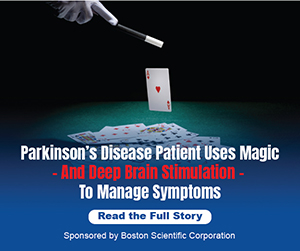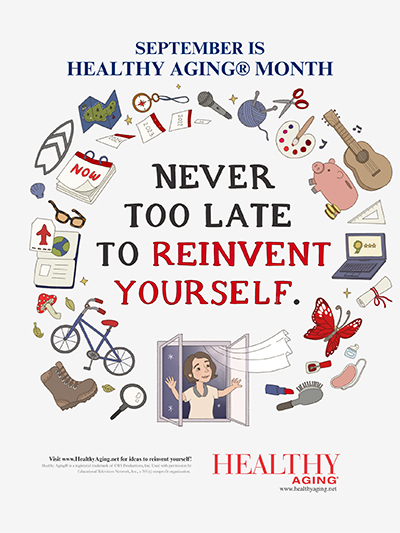![]() How social are you? Keeping buddies or making new ones as we age is more important than just bragging about how many likes or friends you might have on Facebook. Turns out, social ties are just as important to a healthy lifestyle as diet and fitness.
How social are you? Keeping buddies or making new ones as we age is more important than just bragging about how many likes or friends you might have on Facebook. Turns out, social ties are just as important to a healthy lifestyle as diet and fitness.
The more social ties people have, the better their health is at the beginnings and ends of their lives, according to a new study from the University of North Carolina at Chapel Hill.
The study is the first to definitively link social relationships with concrete measures of physical well-being such as abdominal obesity, inflammation, and high blood pressure, all of which can lead to long-term health problems, including heart disease, stroke and cancer.
The importance of building social relationships
“Based on these findings, it should be as important to encourage adolescents and young adults to build broad social relationships and social skills for interacting with others as it is to eat healthy and be physically active,” said Kathleen Mullan Harris, James Haar Distinguished Professor at UNC-Chapel Hill and faculty fellow at the Carolina Population Center (CPC).
The study, published in the Proceedings of the National Academy of Sciences, builds on previous research that shows that aging adults live longer if they have more social connections. It not only provides new insights into the biological mechanisms that prolong life but also shows how social relationships reduce health risk in each stage of life.
Study results
Specifically, the team found that the sheer size of a person’s social network was important for health in early and late adulthood. In adolescence, social isolation increased risk of inflammation by the same amount as physical inactivity while social integration protected against abdominal obesity. In old age, social isolation was actually more harmful to health than diabetes on developing and controlling hypertension.
In middle adulthood, it wasn’t the number of social connections that mattered, but what those connections provided in terms of social support or strain. “The relationship between health and the degree to which people are integrated in large social networks is strongest at the beginning and at the end of life, and not so important in middle adulthood, when the quality, not the quantity, of social relationships matters,” Harris said.
Harris and her team drew on data from four nationally representative surveys of the U.S. population that, together, covered the lifespan from adolescence to old age. They evaluated three dimensions of social relationships: social integration, social support and social strain. They then studied how individual’s social relationships were associated with four markers shown to be key markers for mortality risk: blood pressure, waist circumference, body mass index and circulating levels of C-reactive protein, which is a measure of systemic inflammation.
“We studied the interplay between social relationships, behavioral factors and physiological dysregulation that, over time, lead to chronic diseases of aging — cancer being a prominent example,” Yang Claire Yang, a professor at UNC-Chapel Hill, CPC fellow and a member of the Lineberger Comprehensive Cancer Center. “Our analysis makes it clear that doctors, clinicians, and other health workers should redouble their efforts to help the public understand how important strong social bonds are throughout the course of all of our lives.”
The takeaway…tips for making new friends
The takeaway from this study is to try to either keep existing friendships going or make a concerted effort to create new ones. This is not as easy as it was in younger years when school, clubs and sports teams created a framework for socializing.
For empty-nesters or for anyone who feels a void when friends or family are no longer part of regular socializing, here are some tips:
1. Don’t wait for the phone to ring. Be proactive and call someone for a lunch date. Set up a calendar of lunch dates and challenge yourself to have at least two lunch dates per month (once a week is even better!) Try to mix up your get-togethers with old friends and new acquaintances.
2. What’s your passion? Take a hard look at what you really like to do rather than what other people tell you should do in order to meet new people. Pick some activities where you might meet new friends.
If you hate the idea of signing up for a gym membership, then don’t. If you like walking, find someone who likes to walk at the same time you do every day. Always wanted to become Picasso? Take a painting course and don’t forget to get to know your classmates while you are there.
3. Get a dog. If you don’t have one, get one and walk. You will be amazed how many people you will meet through your dog. Can’t have one? Check your local humane society to see if they need dog walkers.
4. Volunteer. Pick a group that matches your passion
and volunteer your services. Even a couple of hours a week will not only provide a needed service, but you will feel good about yourself and meet new, like-minded future friends. Not sure how to get started? Here are resources:
Volunteer Match is one resource for volunteer positions nationwide. With almost 90,000 active opportunities and over 100,000 participating organizations, this is a good starting point.
Points of Light is the world’s largest organization dedicated to volunteer service with over 250,000 service projects per year in 30 different countries.
AmeriCorps engages more than 75,000 Americans in service annually. Since it was founded in 1994, more than 900,000 members have contributed more than 1.2 billion hours in service across America.











